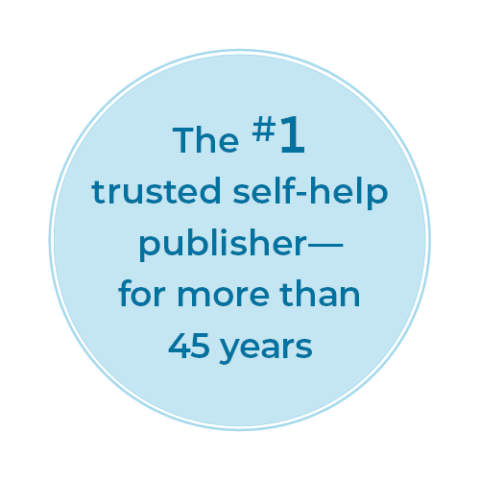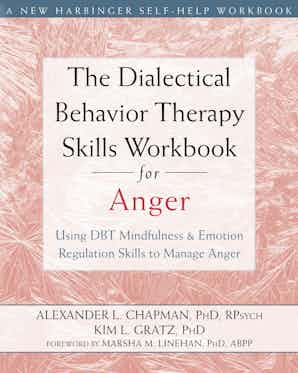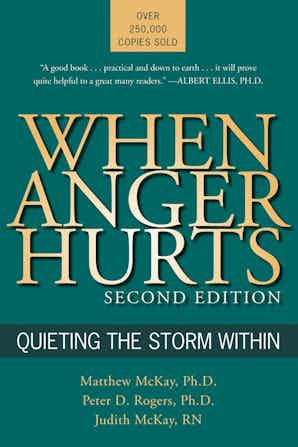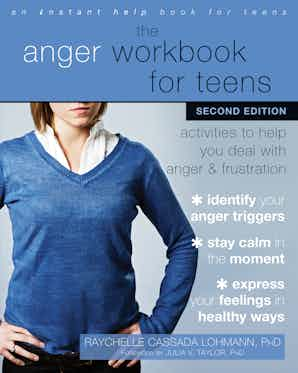Step 1: Conduct an Assessment and Provide Education
The first step in the cognitive behavioral treatment for ACP is to conduct an assessment of the person’s symptoms in order to verify that he or she is struggling with ACP and not some other similar problem. Once people are diagnosed with an anger control problem, it’s important that they understand the basic nature and causes of the problem (as highlighted above). They must learn to identify the situations that trigger their anger, how they experience and express anger, and the consequences of their anger. They must also understand the demands of the treatment for anger control problems, particularly that CBT is an interactive treatment that requires them to do work outside of the therapy session.
Step 2: Develop Relaxation Skills
The second step of the treatment for ACP is to learn relaxation skills, because it is very difficult to feel angry when a person is focused on feeling peaceful and relaxed. Plus, people with ACP often experience physical tension in addition to their mental stress. Learning relaxation skills can help relieve both problems, and there are a variety of different techniques that a person can learn. Included here are four of the most important. All of these techniques include focusing on slow, rhythmic abdominal breathing, which often produces a feeling of calmness.
The first relaxation skill that’s taught is progressive muscle relaxation. It involves a seven-second tightening and releasing of specific muscle groups from head to toe, with emphasis on noticing the difference between the tense feeling and the relaxed feeling.
The second relaxation skill is learning how to release muscle tension without first tensing the muscles. This is done by focusing attention on the muscles and visualizing the tension being released.
The third skill is cue-controlled relaxation, in which a person is taught to relax his or her body by saying a relaxing word, such as “peace” or “relax,” with each slow exhalation.
And, finally, the fourth relaxation skill is special-place visualization. This skill teaches the person to envision a place of calmness and comfort in his or her imagination. The person can go to this “mental safe place” whenever he or she is overwhelmed by angry feelings.
Step 3: Challenge and Correct Self-Defeating Thoughts
The third step of the CBT treatment for anger control problems is to learn several cognitive coping skills that challenge and correct self-defeating thoughts. These thoughts are often the cause of angry and anxious feelings. At the most observable level are automatic thoughts. These are critical thoughts that people think and say to themselves that sabotage success and happiness. Two examples of automatic thoughts might be “Everyone’s always trying to take advantage of me” and “Other people are idiots.” A person can be either aware or completely unaware of having a thought like this. However, in both cases the result is that the person feels angry or anxious.
Often, these anger-producing automatic thoughts are the result of cognitive distortions, or unhelpful thinking styles. For example, overgeneralizing involves making broad negative conclusions about life based on limited situations, such as “Everyone’s always trying to take advantage of me.” Magnifying or catastrophizing involve enlarging the negative aspects of life or expecting the worst to occur; for example, “This situation is going to end very badly.” Labeling is used to automatically categorize people and events in negative and demeaning ways, such as “jerk,” “loser,” and “worthless.” Demanding and commanding thoughts are rules that a person has created for himself or herself and the rest of the world. Examples include beliefs such as “Things should always be done perfectly,” “The world should be perfectly fair,” and “Everyone should love me and treat me with respect.” Cognitive distortions like these are often the triggers for excessive anger.
Much of the CBT treatment for ACP will be spent identifying and reevaluating these errors in thinking. This can be done with the use of an anger log. The anger log helps those with ACP identify triggering situations, the resulting automatic thoughts and distortions, and their reactions to the situation. Then, most importantly, it helps them identify alternative coping strategies for dealing with the situation in a healthier way. This last step includes making a counterresponse plan for each triggering thought. This might consist of finding exceptions to automatic thoughts and looking for alternative explanations for anger-producing situations.
It is also helpful to create reliable coping thoughts that can help the person think of the situation in a different, less angry way. Examples of coping thoughts include “I need to relax before I handle this situation,” “Take a time-out, then deal with it,” and “No one’s perfect; everyone makes mistakes.”
As the work on challenging automatic thoughts continues, a person using an anger log might notice common themes among his or her thoughts. These themes often point to deeper, more firmly entrenched core beliefs about one’s self that make a person more vulnerable to ACP. These core beliefs, often called schemas, include thoughts like “I’m a failure,” “I’m worthless,” and “I’m unlovable.” When these core beliefs are encountered, they too need to be challenged and modified using a thought log and other techniques.
Step 4: Practice Coping Skills in Situations That Produce Anger
The fourth step of the CBT treatment for anger control problems is to practice using both the relaxation skills and the cognitive coping skills in situations that cause anger. At first, the person can practice these skills by imagining situations that typically elicit anger; however, the person should begin using these skills in live anger-producing situations as soon as possible.
Step 5: Develop Problem-Solving Communication Skills
In addition to developing coping skills, it’s helpful to learn problem-solving communication skills, which can prevent anger from developing in the first place. Many people with ACP have difficulty making requests to get their needs met in fair and reasonable ways. Assertive communication skills can be very effective for making these requests. Other people with ACP have difficulty setting limits with others, have trouble effectively listening to others, don’t know how to read others’ body language, have difficulty negotiating, or don’t know how to deal with criticism. Problem-solving communication skills are effective tools for creating better outcomes in all of these situations.
Step 6: Prevent Relapse
Finally, the last step of the cognitive behavioral treatment for ACP is preventing relapse after treatment is complete. The key to relapse prevention is for the person to continue using the cognitive and behavioral skills learned in treatment and to recognize the early signs of recurring ACP, such as labeling people and situations, in order to take steps to prevent relapse.







